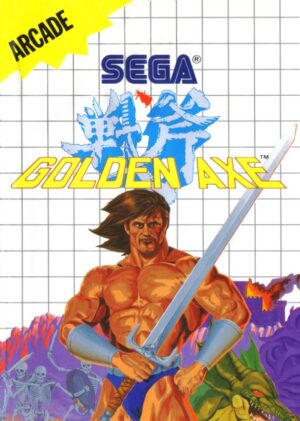Retro Replay Review
Gameplay
Fooblitzky unfolds as a turn‐based scavenger hunt, blending board‐game mechanics with computer‐driven logic. Players take on the role of amateur detectives roaming a small town in search of four specific objects. Each turn, you decide whether to move, buy items, or interview townsfolk, with each action consuming in‐game currency and time, adding a layer of strategy to every decision.
(HEY YOU!! We hope you enjoy! We try not to run ads. So basically, this is a very expensive hobby running this site. Please consider joining us for updates, forums, and more. Network w/ us to make some cash or friends while retro gaming, and you can win some free retro games for posting. Okay, carry on 👍)
A standout feature is its multiplayer focus: up to four friends can compete on the same machine, taking turns to outwit one another. This social element shines when you trade tips, bluff your opponents or race to key locations. It encourages lively table talk and an atmosphere that feels more like a living board game than a solitary video‐game session.
The off‐computer components—in particular the folding town map and paper notebooks—are more than mere gimmicks. They’re integral to play, forcing you to jot down clues and circle potential locations much as you would in a real detective case. This analog interaction extends the immersion and keeps you engaged even while waiting for other players to finish their turns.
Graphics
By modern standards, Fooblitzky’s visuals are rudimentary, consisting primarily of simple line drawings and sparse color fills. The town map is split into a grid of blocks, each represented by a static image of streets, buildings, or parks. While these graphics lack detail, they convey enough information to guide your decisions and highlight important locations.
Infocom’s design philosophy here was functional minimalism: every pixel serves a purpose. There’s no decorative ornamentation, which keeps the screen uncluttered and focused on gameplay. When you enter shops or homes, the scenes shift to slightly more detailed interiors, but always within the same restrained aesthetic.
The reliance on off‐computer materials compensates for the in‐software simplicity. The printed map is richly illustrated compared to the on‐screen version, and player notebooks carry your sketches and notes in full color. This hybrid approach makes the digital graphics feel like gateways to a larger, tangible world rather than standalone art assets.
Story
Fooblitzky doesn’t offer a deep narrative or elaborate backstory—instead it presents a loose detective scenario. You and your rivals are amateur sleuths plunged into a weekend mystery, searching for four hidden items in a quiet town. The lack of an overarching plot allows the mystery itself to shine as the primary driver of player motivation.
The minimalist story framework is actually a strength, as it invites your own creativity to fill in the gaps. You invent motives for the townspeople, concoct theories about why certain items are hidden, and role‐play the detective persona you prefer—whether methodical investigator or bold treasure hunter. This freedom keeps each session fresh and personal.
Though the narrative scaffolding is thin, the game occasionally peppers in quirky townsfolk profiles and brief rumors that hint at deeper local color. These snippets add personality without bogging down the core scavenger‐hunt mechanics. You emerge with memories of wry shopkeepers and offbeat clues, even if there’s no sweeping finale or dramatic exposition.
Overall Experience
Fooblitzky stands out as a unique experiment in hybrid gaming. Its marriage of computer logic with physical maps and notebooks feels daring for its era—and charmingly nostalgic today. The social, turn‐based design fosters camaraderie and friendly rivalry, making it ideal for game nights with friends or family.
That said, the reliance on physical components and local multiplayer limits its appeal in an age of online gaming. Solo players or those without willing participants may find it hard to recreate the intended experience. The learning curve is gentle, but first‐time players must acclimate to juggling on‐screen prompts with paper and pencil tasks.
Ultimately, Fooblitzky rewards those who appreciate its old‐school ingenuity and cooperative spirit. It’s less about flashy visuals or epic storytelling and more about the delight of deduction, the thrill of competition, and the tactile satisfaction of marking clues on a real map. For collectors, retro enthusiasts, or anyone craving a communal mystery challenge, Fooblitzky remains a distinctive, memorable outing.
 Retro Replay Retro Replay gaming reviews, news, emulation, geek stuff and more!
Retro Replay Retro Replay gaming reviews, news, emulation, geek stuff and more!









Reviews
There are no reviews yet.